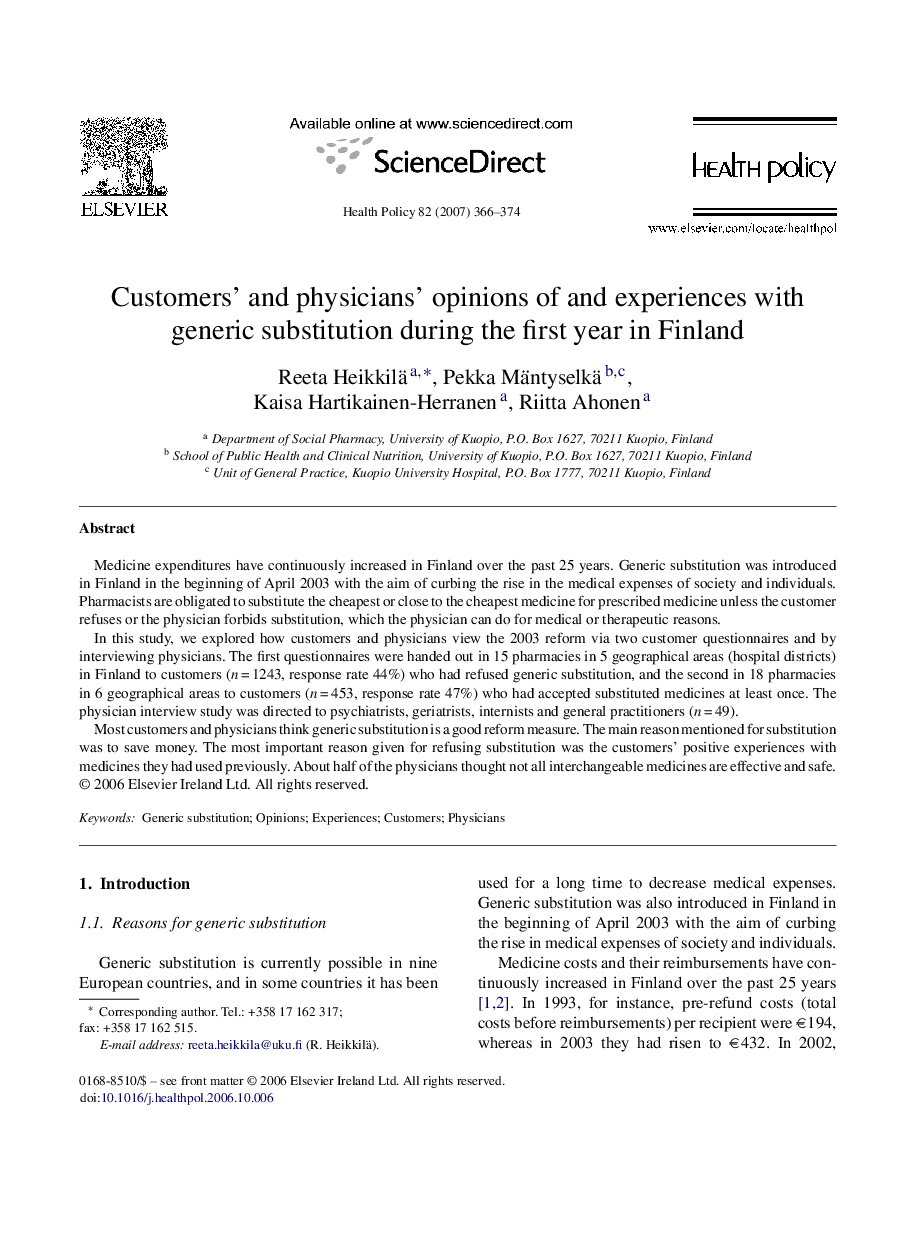| Article ID | Journal | Published Year | Pages | File Type |
|---|---|---|---|---|
| 4198856 | Health Policy | 2007 | 9 Pages |
Medicine expenditures have continuously increased in Finland over the past 25 years. Generic substitution was introduced in Finland in the beginning of April 2003 with the aim of curbing the rise in the medical expenses of society and individuals. Pharmacists are obligated to substitute the cheapest or close to the cheapest medicine for prescribed medicine unless the customer refuses or the physician forbids substitution, which the physician can do for medical or therapeutic reasons.In this study, we explored how customers and physicians view the 2003 reform via two customer questionnaires and by interviewing physicians. The first questionnaires were handed out in 15 pharmacies in 5 geographical areas (hospital districts) in Finland to customers (n = 1243, response rate 44%) who had refused generic substitution, and the second in 18 pharmacies in 6 geographical areas to customers (n = 453, response rate 47%) who had accepted substituted medicines at least once. The physician interview study was directed to psychiatrists, geriatrists, internists and general practitioners (n = 49).Most customers and physicians think generic substitution is a good reform measure. The main reason mentioned for substitution was to save money. The most important reason given for refusing substitution was the customers’ positive experiences with medicines they had used previously. About half of the physicians thought not all interchangeable medicines are effective and safe.
